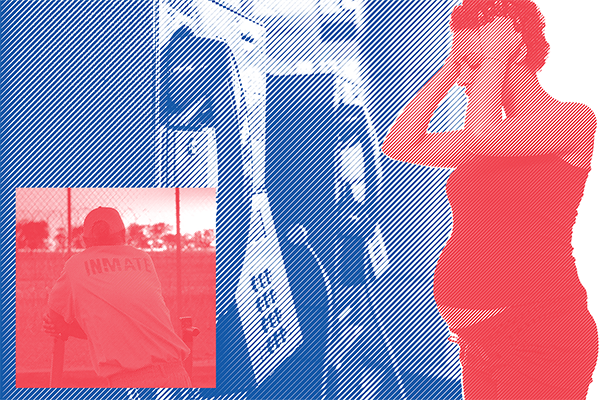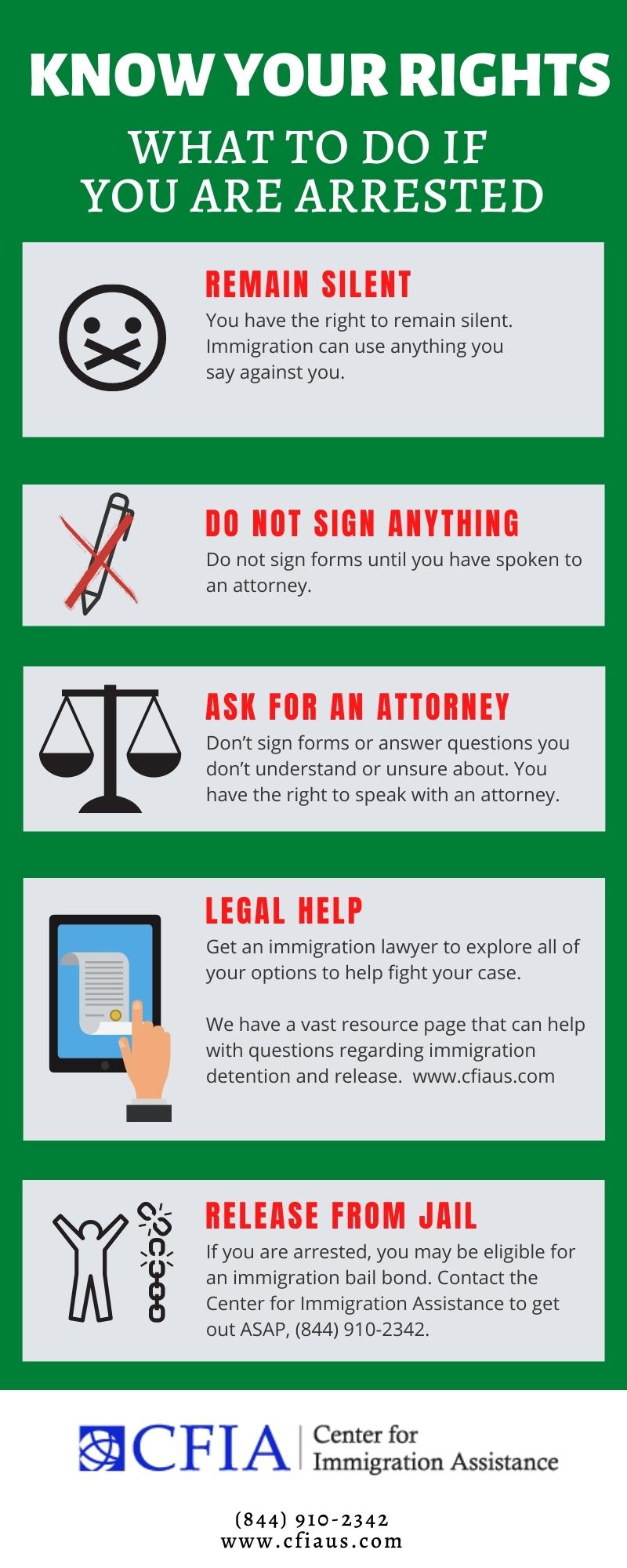No, inmates cannot sign legal documents unless granted power of attorney by someone else. Inmates do not have the authority to sign legal documents unless another party grants them power of attorney.
This restriction is in place due to their current incarceration status, and a power of attorney is required to legally act on behalf of the inmate. In such cases, strict procedures and documentation are necessary for the inmate to grant someone the legal right to sign documents on their behalf.
Understanding the limitations and legalities surrounding inmates’ ability to sign legal documents is crucial for anyone involved in legal matters with incarcerated individuals.
Credit: www.wyff4.com
Can Inmates Sign Legal Documents?
Can Inmates Sign Legal Documents?
Incarcerated individuals, despite being in prison, still possess certain legal rights that allow them to engage in legal activities, including signing legal documents. These rights are essential for ensuring the fair treatment and access to justice for inmates.
Despite their incarceration, inmates may need to sign legal documents for various reasons. This could include matters related to their legal representation, such as authorizing lawyers to act on their behalf, or signing contracts and agreements related to their personal affairs or business matters.
Signing legal documents while incarcerated poses several challenges. Inmates may face restrictions on access to resources like printers, scanners, or notary services. Additionally, the secure and controlled environment of the prison may also pose logistical challenges for signing legal documents.
The process of getting legal documents signed by inmates often involves coordination with prison officials and following specific protocols. This may include obtaining permission from the authorities, arranging for the documents to be delivered to the inmate securely, and ensuring the documents are returned to the appropriate parties in a timely and secure manner.
When inmates are unable to sign legal documents themselves, they have options to authorize someone to sign on their behalf. This could involve appointing a legal representative, such as a lawyer, to act as their authorized signatory for legal matters, ensuring that their rights are protected even while incarcerated.
Understanding The Rights Of Incarcerated Individuals
Overview Of The Rights Of Inmates
When it comes to understanding the rights of incarcerated individuals, it is crucial to ensure that even in prison, individuals maintain certain fundamental rights. Incarcerated individuals, despite being deprived of their freedom, have specific rights that are protected by law. These rights are essential for maintaining a humane environment within correctional facilities and ensuring fair treatment for inmates.
Specific Rights Related To Legal Documents
Specifically, inmates have the right to sign legal documents, including contracts, powers of attorney, wills, and other legal papers. This ensures that inmates can have access to legal representation and take necessary legal actions while in prison.
Instances When Inmates May Be Restricted From Signing Legal Documents
In certain instances, inmates may be restricted from signing legal documents. For example, if the inmate is under legal guardianship or lacks mental capacity, they may not have the legal authority to sign documents. Additionally, the prison authorities may impose restrictions on signing legal documents if it is deemed necessary to review the documents for security and other reasons.
Reasons For Inmates Needing To Sign Legal Documents
It is important for inmates to have access to legal processes and be able to sign legal documents. This is crucial for ensuring their rights are protected, facilitating communication with their legal representatives, and allowing them to participate in important legal actions. There are several reasons why inmates may need to sign legal documents. This section will explore the importance of inmates having access to legal processes, common types of legal documents inmates may need to sign, and examples of situations where inmates may need to sign legal documents.
Importance Of Inmates Having Access To Legal Processes
Inmates, like any other individual, have the right to access legal processes and seek legal representation. Signing legal documents is a fundamental part of exercising these rights. It allows inmates to communicate their intentions, provide consent, or assert their legal claims. Without the ability to sign legal documents, inmates may be unable to engage in legal actions, effectively defend themselves, or exercise their constitutional rights.
Common Types Of Legal Documents Inmates May Need To Sign
There are various types of legal documents that inmates may encounter during their incarceration. Some common examples include:
- Power of Attorney forms
- Release forms for medical treatment or disclosure of information
- Affidavits or sworn statements
- Court documents such as petitions, motions, or waivers
- Contracts or agreements related to their legal representation
Examples Of Situations Where Inmates May Need To Sign Legal Documents
There are several situations where inmates may need to sign legal documents. Some examples include:
- Granting power of attorney to a trusted individual to handle legal matters on their behalf
- Providing informed consent for medical procedures or treatments
- Submitting affidavits or sworn statements as evidence in their defense
- Signing court documents to initiate or respond to legal actions
- Entering into contracts or agreements with their legal representatives
It is crucial to ensure that inmates have the necessary means to sign legal documents so they can protect their rights, participate in legal proceedings, and pursue justice. This access to legal processes plays a vital role in helping inmates navigate the legal system and assert their legal rights.
Challenges Of Signing Legal Documents While Incarcerated
When it comes to signing legal documents, individuals who are incarcerated face a unique set of challenges. These challenges are centered around restrictions and limitations imposed on inmates, lack of resources and access to legal assistance, as well as security concerns and oversight by prison authorities. Each of these challenges can significantly impact an inmate’s ability to navigate the legally binding process of signing important documents.
Restrictions And Limitations Imposed On Inmates
Incarcerated individuals are subject to numerous restrictions and limitations that affect their daily lives, including their ability to sign legal documents. These restrictions can vary from state to state and are often imposed to maintain security and control within correctional facilities. Inmates may face limitations on the types of legal documents they can sign, as well as the circumstances under which they are allowed to sign them.
Lack Of Resources And Access To Legal Assistance
One of the main challenges faced by inmates when it comes to signing legal documents is the lack of resources and access to legal assistance. Incarcerated individuals often struggle to afford legal representation or engage in legal processes due to financial constraints. This lack of resources can hinder their ability to effectively understand the legal implications of signing a document and make informed decisions.
Moreover, the limited access to legal assistance further complicates the process. Inmates may find it challenging to seek advice or guidance from lawyers or legal professionals, which can affect the validity and enforceability of the documents they are required to sign.
Security Concerns And Oversight By Prison Authorities
Another significant challenge faced by individuals signing legal documents while incarcerated is the strict security concerns and oversight by prison authorities. Correctional facilities prioritize security measures to ensure the safety of inmates, staff, and the general public. These measures often include the monitoring and supervision of inmate activities, including the signing of legal documents.
In order to maintain control and prevent abuse or fraudulent activities, prison authorities may impose additional protocols or requirements when it comes to signing legal documents. These protocols can further hinder an inmate’s ability to access necessary resources, meet deadlines, or provide accurate and thorough information within the document.
In conclusion, the challenges faced by individuals who are incarcerated in signing legal documents are multifaceted. The restrictions and limitations imposed on inmates, lack of resources and access to legal assistance, as well as the security concerns and oversight by prison authorities, all contribute to the complexity of the process. It is important for policymakers and legal professionals to address these challenges and find solutions that ensure the fair and efficient management of legal matters for incarcerated individuals.
The Process Of Getting Legal Documents Signed By Inmates
When it comes to signing legal documents, inmates face certain challenges due to their incarceration. However, the legal system recognizes the need for inmates to have their documents signed, and therefore, there is a process in place to facilitate this. In this section, we will explore the steps involved in getting legal documents signed by inmates and the roles of prison authorities and legal professionals in ensuring the validity of these signatures.
Overview Of The Steps Involved In Getting Documents Signed
Getting legal documents signed by inmates involves several steps:
- The inmate expresses the need to sign a legal document, whether it’s for matters related to their case, family, or other personal affairs.
- The inmate’s request is reviewed by the prison authorities, who assess the nature of the document and its potential impact on the inmate’s situation.
- If deemed appropriate, the prison authorities provide the necessary forms and guidance to the inmate. This can include assistance from legal professionals or legal aid organizations.
- The inmate fills out the required information on the document, which could include their name, inmate ID, the purpose of signing, and any other relevant details.
- Once the document is completed, the inmate submits it to the designated prison personnel for further processing and verification.
- Prison authorities may review the document to ensure it complies with the prison’s rules and regulations.
- If approved, the document is presented to the inmate for their signature.
- The inmate signs the document in the presence of a witness, usually a prison staff member or a legal professional.
- Finally, the signed document is sent to the relevant recipients or parties involved, ensuring proper documentation and record-keeping.
Role Of Prison Authorities And Legal Professionals
The process of getting legal documents signed by inmates requires the collaboration of various stakeholders:
| Prison Authorities | Legal Professionals |
|---|---|
| Review inmate requests for document signing | Provide legal guidance to inmates |
| Ensure compliance with prison policies | Assist in filling out the required information on documents |
| Perform document verification | Act as witnesses during the signing process |
| Act as witnesses during the signing process | Offer legal expertise to ensure document validity |
| Facilitate proper record-keeping | Advocate for inmates’ rights and ensure due process |
Requirements For Ensuring The Validity Of Inmate Signatures
Validating inmate signatures on legal documents involves specific requirements:
- The presence of a witness during the signing process to attest to the authenticity of the signature.
- Verification of the inmate’s identity through their inmate ID or other official identification.
- Adherence to prison regulations regarding document signing, including any limitations or restrictions.
- Proper documentation and record-keeping to ensure transparency and accountability.
By following these requirements and involving the necessary parties, the validity of inmate signatures can be safeguarded, ensuring the legal efficacy of the documents they sign.
Credit: www.aclu.org
Options For Inmates To Authorize Someone To Sign On Their Behalf
Incarcerated individuals can authorize someone to sign documents on their behalf through a power of attorney. This legal document grants specific rights to the designated person, allowing them to sign and act on the inmate’s behalf concerning legal matters. However, it’s crucial to adhere to the laws and regulations governing such arrangements.
Exploring Power Of Attorney Options For Inmates
When it comes to signing legal documents, inmates face unique challenges due to their confinement. However, there are options available to authorize someone to sign on their behalf. One such option is granting power of attorney.
Power of Attorney:
Power of attorney is a legal document that allows an individual, known as the “principal,” to appoint another person, known as the “agent” or “attorney-in-fact,” to act on their behalf in legal matters. This can include signing documents, making decisions, and managing finances. In the case of inmates, granting power of attorney can provide a solution to the issue of signing legal documents while incarcerated.
The power of attorney document must be carefully drafted and executed in accordance with the legal requirements of the jurisdiction in which it is being used. It is crucial to consult with an attorney experienced in this area to ensure compliance with all necessary legal considerations and requirements.
Legal Considerations And Requirements For Granting Authority
Legal Considerations:
- The prison authorities or the court may need to review and approve the power of attorney document before it is considered valid. This is to ensure that the inmate fully understands the implications of granting someone else the authority to act on their behalf.
- The powers granted in the power of attorney document should be clearly defined to avoid any potential conflicts or misunderstandings.
- The agent appointed in the power of attorney document should be someone the inmate trusts implicitly and who is capable of acting in their best interests.
Legal Requirements:
- The power of attorney document must be in writing and signed by the inmate in the presence of witnesses, as required by law.
- The signatures of the inmate, witnesses, and any required notarization must be obtained in compliance with the specific legal requirements of the jurisdiction.
- The power of attorney document should ideally be notarized to add an additional layer of authenticity and legality.
Alternative Methods For Signing Legal Documents In Absence Of Inmates
While the power of attorney is a commonly used method for inmates to authorize someone to sign on their behalf, there may be situations where this option is not feasible or preferred. In such cases, alternative methods can be considered:
- Virtual Signatures: Some states or jurisdictions may allow for the use of virtual signing technologies that enable documents to be signed electronically without the physical presence of the inmate. These virtual signatures hold the same legal weight as traditional ink signatures.
- Authorized Agent: In certain situations, the prison authorities may allow an authorized individual, such as a lawyer or a legal representative, to sign legal documents on behalf of the inmate if they have been granted specific approval.
- Notarized Affidavit: In some cases, an inmate may be able to sign a notarized affidavit, which is a sworn statement made under penalty of perjury. This affidavit can serve as proof of the inmate’s intention and authorization without the need for a physical signature on the document itself.
It’s important to note that the availability and acceptance of these alternative methods may vary depending on the jurisdiction and the specifics of the legal document in question. Consulting with a legal professional familiar with the rules and regulations of the specific jurisdiction is highly recommended.
Credit: www.cfiaus.com
Frequently Asked Questions Of Can Inmates Sign Legal Documents
What Rights Do Inmates Have In Texas?
In Texas, inmates have the right to safe and sanitary living conditions, protection from harassment and discrimination, and access to legal representation. They cannot sign legal documents unless given a power of attorney. They can send letters but shouldn’t include confidential information.
What Not To Put In A Jail Letter?
In a jail letter, it is important not to include confidential information or anything that you wouldn’t want the jail staff to read. This includes information related to legal representation since the mail is not privileged or confidential. Most topics are acceptable, so you can write about anything you want.
Can You Write Letters From Jail?
Yes, inmates can write letters from jail. However, they need to have money on their books to buy paper, envelopes, and stamps, or they can trade with other inmates for supplies.
Can Prisoners Write To Each Other?
Yes, prisoners can write to each other. They can send and receive letters according to the rules of the prison, including limitations on frequency and content.
Conclusion
Inmates do have the ability to sign legal documents, but there are certain limitations and procedures in place. The prison authorities may review the documents before allowing the inmate to sign. It is important to note that incarcerated individuals must have the authorization, such as a power of attorney, to sign on behalf of another person.
Additionally, sending letters from jail is possible, but inmates need to have funds or resources to purchase paper, envelopes, and stamps. Overall, while inmates have some rights and abilities, there are restrictions in place to maintain security and order within the correctional system.


